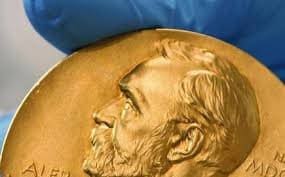Kolkata-born Abhijit Banerjee, Ford Foundation Professor of Economics, Massachusetts Institute of Technology, his wife Esther Duflo, also from MIT, and Michael Kremer of Harvard University have won the Nobel Prize for Economics Sciences for 2019. The trio was awarded the Prize for their “experimental approach to alleviating global poverty”.
The Royal Swedish Academy of Sciences said their work had shown how poverty could be addressed by breaking it down into smaller and more precise questions in areas such as education and healthcare, making problems easier to solve. It said the results of their studies and field experiments had ranged from helping millions of Indian schoolchildren with remedial tutoring to encouraging governments around the world to increase funding for preventative medicine.
Banerjee, educated at Kolkata and the JNU, did his PhD at Harvard University while Duflo with degrees in economics and history from EcoleNormaleSuperieure, Paris, did her PhD in economics at MIT. They co-founded, with SendhilMullainathan, the Abdul LatifJameel Poverty Action Lab (J-PAL) at MIT in 2003. The duo’s book Poor Economics, published in 2012, has been translated into 17 languages. Kremer is Gates Professor of Developing Societies in the Department of Economics at Harvard University. His research has explored issues relating to health, education and agriculture in developing economies.
Duflo, at 46, is the youngest laureate ever to win this recognition and is also the second woman to bag this honour after ElinorOstrom of the US in 2009. Speaking by telephone to the Royal Swedish Academy of Sciences, she said the prize came “at an extremely opportune and important time.” She added that the award shows that “it is possible for a woman to succeed and be recognised for success.”
“What we try to do in our approach is to say, ‘look, let’s try to unpack the problems one-by-one and address them as rigorously and scientifically as possible’,” she told a news conference in Stockholm over telephone explaining their work. For example, their field experiments that found that while providing more textbooks and free school meals had only small effects, targeted help for weak students made a significant difference to overall educational levels.
Another study gathered evidence on how an often overlooked measure such as deworming children could help their education. Yet another found that making the renewal of teacher contracts dependent on pupil grades produced better scores, while reducing the pupil-teacher ratio had little impact. In just two decades, their new experiment-based approach has transformed development economics, which is now a flourishing field of research,” the Royal Swedish Academy added.
Banerjee, along with RaghuramRajan, Gita Goipinath and Mihir Sharma, had come out with a book titled what economy needs now in April 2019 just before the elections. It was a collection of articles that dealt with issues such as bad loans in the banking sector, farmers’ unrest, and falling growth. It also gave important suggestions for labour reforms, healthcare reform, education and environment.

